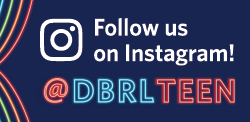
Last month my theme was books I wouldn’t normally reach for first (meaning anything not fantasy). This time my theme is nonfiction because these three looked so amazing that I couldn’t resist highlighting them. If you find yourself wanting to try more nonfiction but are unsure where to start, these are all excellent options.
“America Redux: Visual Stories From Our Dynamic History” by Ariel Aberg-Riger
It’s not often that I consider a book to be essential reading. This one definitely falls into that category. Using a series of striking collages, the author tells stories that are not often found in textbooks. All of the chapters begin with the history of a topic, then seamlessly relate it to what is happening now. For example, the first chapter details the origins of the United Daughters of the Confederacy after the Civil War, and shows how their viewpoint is still influencing education today in the legislature. There are chapters on the annexation of Hawai’i, involuntary sterilization, urban renewal and much more, all told in succinct and accessible prose matched with thought-provoking collages. I wish I’d had this book in my life a long time ago.
“83 Days in Mariupol: a War Diary” by Don Brown
Next up is a graphic nonfiction. Similar in some ways to our last book, but this is told in panels in the graphic novel style instead of with collages. So remember the war in Ukraine? That war that’s still going on? Most of the yard signs have disappeared by now, but the conflict is still a very real thing. This book really brought that home to me. After a brief history of Ukraine, the author shows the siege on Mariupol, one of the first places Russia attacked. As the citizens are awakened with bombings, many flee while others are trapped or killed. Black and white sketch illustrations depict the bravery and determination of Ukrainian forces as well as the stark horrors of war. Lack of water, electricity and medical care for the citizens of Mariupol is shown, along with testimonies from the survivors. Others were not so lucky in the 83-day siege, as shown by the bodies laying dismembered and forgotten in the streets. I can’t pretend that this will be an easy book to read, but it is unequivocally an important one.
“From Here” by Luma Mufleh
Let’s end on something a bit more hopeful, yes? No pictures this time, this is a memoir by a refugee advocate and activist named Luma Mufleh. Luma grew up privileged in a rich family in Jordan in the 1980s. But an enjoyable and sheltered childhood gave way to a secret and shame-filled adolescence as she realized she’s attracted to other girls. Knowing that she could be killed by her government, and struggling with suicidal ideation, Luma applies for college in the U.S. Once there, she officially comes out and is promptly disowned by her family. Luma seeks asylum in the U.S. amidst attempts to bring her back to Jordan, and learns to build a new home for herself—even while still missing and loving the home and country she once had. Speaking to both the refugee and LGBTQ+ experience, this memoir will have a broad appeal for everyone seeking to live their lives free from fear and condemnation.

